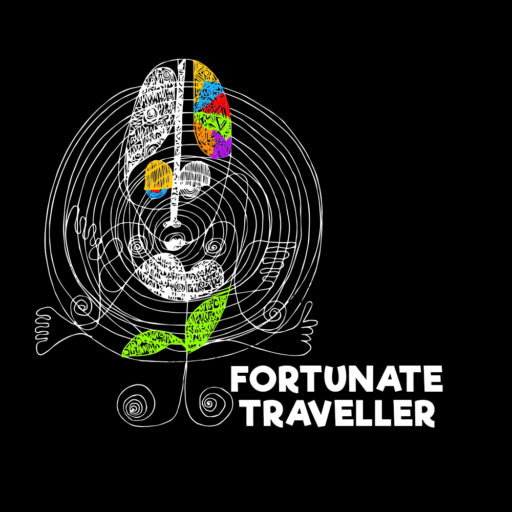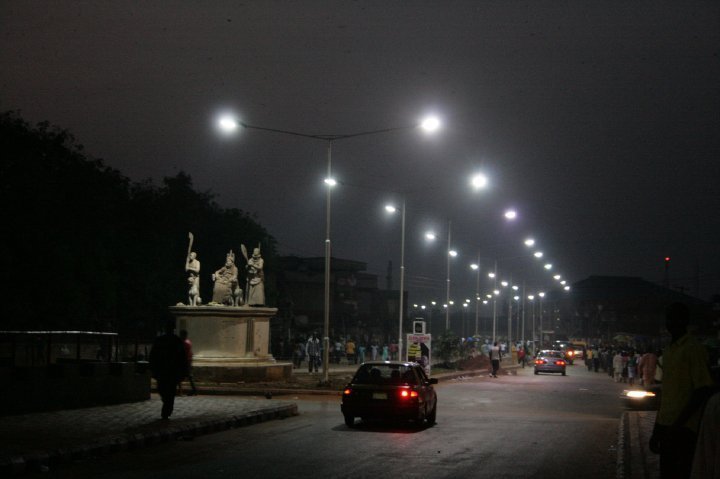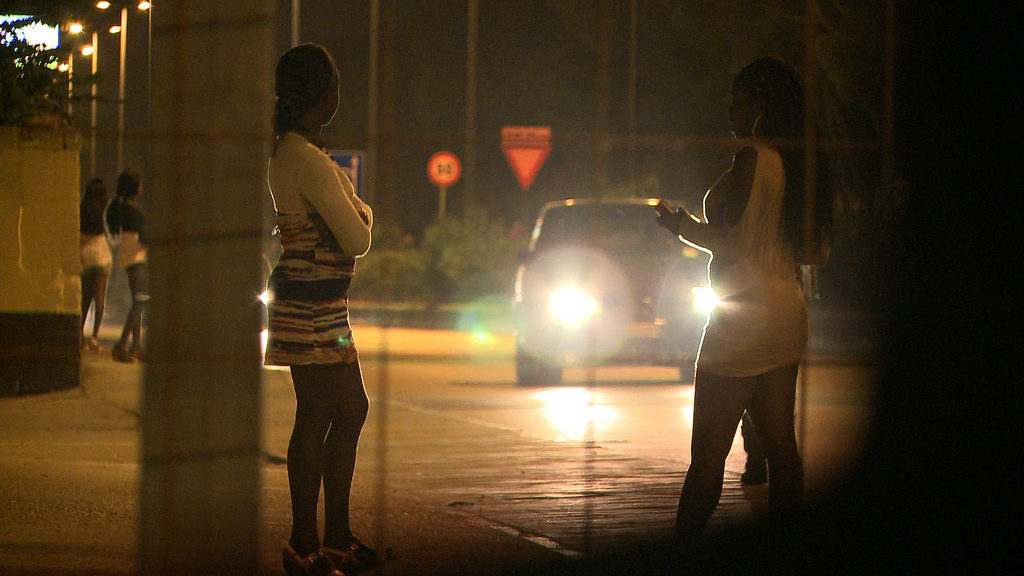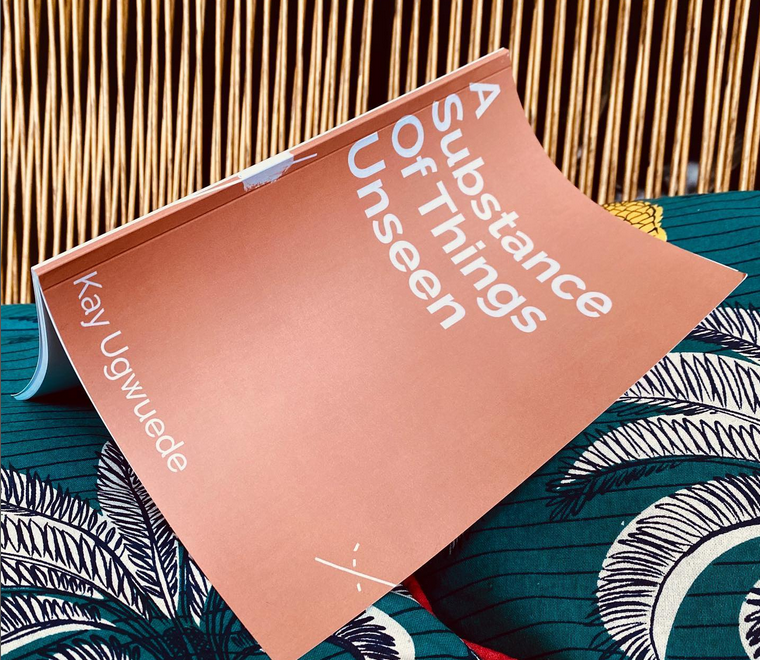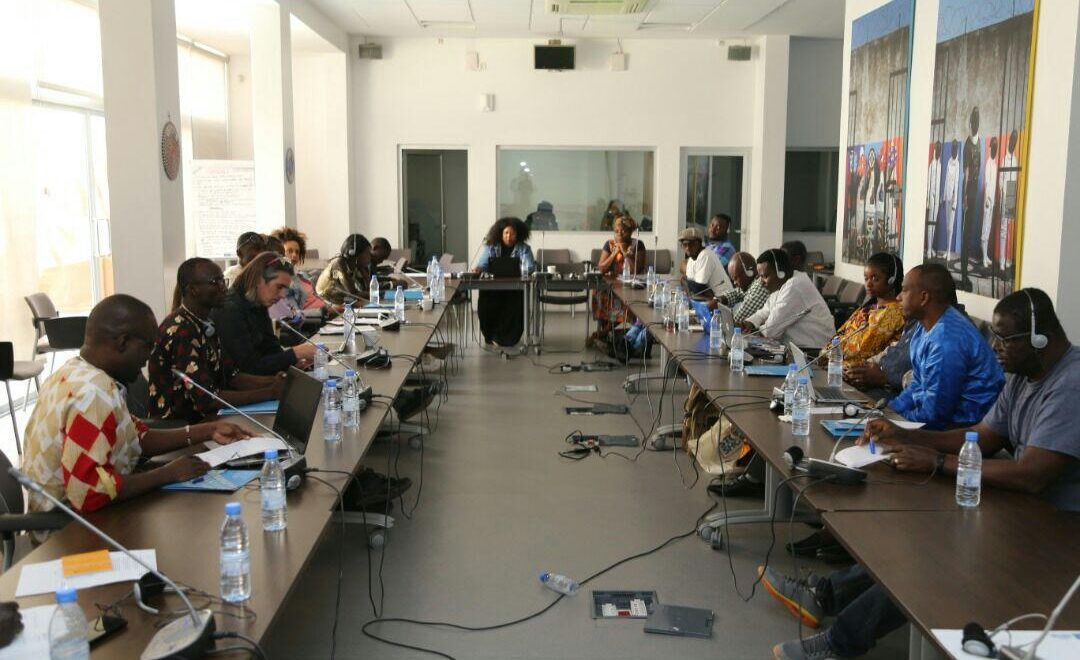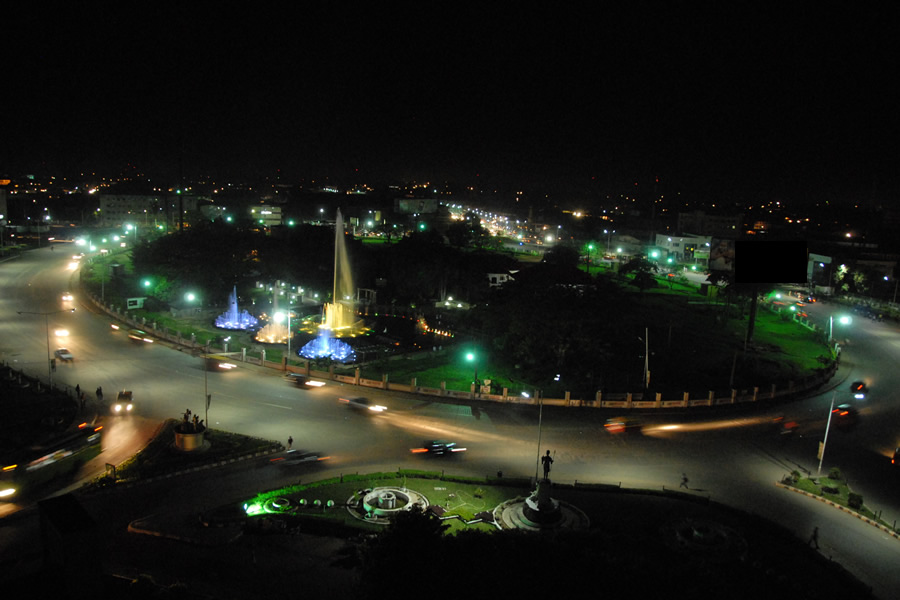
The loves we share with a city are often secret loves. – Albert Camus; ‘Summers in Algiers’ from The Myth of Sisyphus and Other Essays.
The beauty of a city is ascertained at night; a night is a beautician which costumes and, most of the times, prettifies its landscapes. When the fussiness of transaction is laid to rest somewhere in the pulse of a city and the last spatter of daylight is drained out of the sky, streets lighted by streetlights, and passing automobile headlights, when shadows become oblong and elongated, an indication of perhaps ephemerality, and when they comingle, crossed, twined in alleys, bus stops like some prescient act that is ready to come on stage, and all that, there is that elusive contentment that warms your heart, surreally paradisiacal. This is the moment the ordinary suddenly becomes glamorous, picturesque and alluring. I am sure when the devil took Jesus to a mount and showed him the expansive beauties of the world to tempt him, it must have been during night-time, though there is never that suggestion in the Bible. But a movie adaptation of the story I recently watched, perhaps Mel Gibson’s The Passion of Christ, corroborates my apocryphal asseveration.
The character of a city is also discovered at night; it’s an hour everything gets truthful and acquiescing. It’s an hour you are able to uncover the façade of industriousness a city usually wears. If it’s a Lucullan city, you could tell from the architectural designs, and you could even glean its history from the designs. Crossroads and intersections in Nigerian cities will tell you many things through the statutes and emblems erected there. Likewise, the habits of the inhabitants of a city will also give you some clues to its lineament, whether they are cultured or fervent religious bunch, their fears and prejudice. And if it’s a poor city, you’ll definitely find squatters on sidewalks and corners making their beds. Rubbish from the day’s activities would litter everywhere as well.
If a city nurtures a secret, it is undressed at this hour. It is a time, a waking hour, I should say, the gods of flesh of a city emerge from somewhere within us and take reign of the night. And these gods of flesh are the city’s sisters, aunt, nieces, even mothers.
All these are observations I have understood as a traveller and spectator; and I maintain, if you want to discover these, of any city, just slip your shadow, at night, into that city: there is no other time suitable for arrival for a traveller than at night.
There is something about Friday night as well that insinuates debauchery and revelry. On blotto, isn’t Nigeria noted to be the highest consumer of Champagne, just after France where it is traditionally produced? On debauchery, I can remember my time in Ibadan when I was working in a law firm. We usually closed office on Friday very late just to sit back for rush hour to ease off. This always afforded me the occasion of mesmerisation whenever I was returning home and a taxi was taking me through the districts of Dugbe, Iyaganku, Ring Road. These routes were dominated by discothèques and night workers, but you will never suspect anything sinister during the daytime.
But I want to believe Benin City on Friday night is among the most sinister of African metropolises. It is a surest passage to discover the paean to the city’s beauty and affluent secrets – everybody knows about the secrets, even as far as continents away. Bodies of women from this city tell it on the bed of prostitution in Europe and America. On this Friday night, the beauty and true character of Benin City yielded to me at once.
I was on my way to meet with friends at GRA who were on a travel project, Borders Within: The Trans-Nigerian Road Trip. They were merely having a stopover in the city for few days. We had met the previous day on the Ugbowo Campus of University of Benin, Benin City. We had shared conversations. The whole team had addressed and motivated the students of English and literature department of the university where they participated in their weekly literary forum. I had walked the ancient Igun Street, amongst the beautiful bronze castings, mementos and other artefacts with Emmanuel Iduma talking about literature, movies (Nigerian and, especially Yoruba movies), art criticism and a little bit of politics. So I was simply going to bid them safe journey when they would be leaving the next day.
I wound my way to Ring Road on a campus shuttle. I walked along the Oba market to a taxi park going to GRA. The circular road that enclosed the museum at Ring Road has always fascinated me. A museum at the heart of a city and a busy road encircling it. This was also a fascination and hazard for another traveller, Noo Saro-Wiwa in her book, Looking for Transwonderland: ‘Benin’s former glories had now retreated behind the four walls of its museum. Reaching the place felt like a life-threatening challenge, seemingly designed to test one’s commitment to its antiquities. The museum was sequestered within the confines of a busy roundabout that forced visitors to sprint across four lanes of ruthless traffic to reach it.’
I joined one of the taxis in front of the museum. Sometimes I wonder if there is Road Safety Corp at all in Benin City or whatever organizations charged with road safety. Because a taxi in Benin is meant to carry seven passengers! I squeezed myself with a woman in the passenger’s seat to avoid a more difficult situation at the back seat where it’s unthinkable how four people could have been tightened together.
The taxi wound its way past the state House of Assembly, along the Airport road to GRA. I loved the mood the night was wearing. The statues and bronze castings at various intersections depicting histories and traditions of the Bini are occasionally bathed in neon lights from digital billboards and passing automobiles. You have snapshots of these as you momentarily catch glimpses of these statues as if they were a mystery. The quietude, the statues were like an echo in perpetuity; it was as if they were re-enacting a distant historical play they were sculpted to play. This will lure you into the impression you are in the 14th century when you strip off all the traces of modernity the city wears. It will remind for the unknowing traveller or city feeler the heritage of the Bini.
It was a rutted ride; it took probably about forty minutes. I met Innocent in the living room, his head caught in the hands of a lady weaving his hair. He was especially animated. I mentioned my observation to him of the elation of his character, he was expressly talkative. He used the word ‘impulse’ to stick it up. Isn’t that one of the benefits of travel? Travel bequeaths freedom; it frees our inner impulses. There are some things one wouldn’t naturally do, whether out of sheer reservation or compulsion, except one is far away. That desire to try out new things like food, attitude, dress mode, even sex with strangers.
My own perverted attitude whenever I am on a journey is exchanging flirtatious remarks with any beautiful lady close to me or meet in the course of the journey. Though I still can’t fathom the science behind that. Maybe it is a deep-seated unconscious vanity that had always been there. There was a time I was road-tripping from Osogbo to Ibadan and there was this pretty lady sitting just next to me on the bus. She was fair in complexion, pretty with a doll-like face and packed her hair into a pony. She had this supple skin that sent a fire down my spine when I grated my skin against hers. I draw her into a conversation and quickly veered into teasing her. She was coquettish herself, enjoying every bit of it, even felt comfortable with the naked lecherousness in my eyes. That was when I perceived that smell, from her, imploring ‘come on’, ‘I’m ready’. That smell I have come to associate with sex. The smell could also vary for different people. For me, it’s like sweaty, musky flesh, already satiated. Richard Herncastle in The Lost Empire calls it a ‘fishily smell’. Modern scientists call it pheromones; a kind of sex attractant they are not so sure about yet. But I let all that pass. I had not intended it to go beyond that. Flashes of where the last one got me on one of my travels down to Ibadan, in the dead of the night, passed through my mind: it is a moral I am still living to tell myself.
Nonetheless it’s worth mentioning to say travel is also a search for true self. It does not really falsify our character, but rather brings out our true character. But it can also become a mask where a traveller can hide behind his true self.
When I arrived at Iduma’s place, they, the entire travel team, were having a farewell party at the yard. I was invited to join them. But too shy and not used to such, I repeatedly turned it down. Iduma poured me some wine which I also shied away from, though I teased and called him ‘Emma Malt’, what Niran Okewole, a fellow Nigerian writer and poet, called him in a situation like that years back from Iduma’s travel account I read some time ago. There is this Yoruba belief that a god does not eat in the presence of man; and kings being the vicegerent of gods in Yorubaland are believed and expected never to eat in the presence of man. Sometimes, I amuse myself by giving this excuse whenever I am invited to eat in an atmosphere I am not too comfortable with.
I liked the fact they understood and just let me be with Innocent and Yinka tucked away in a corner where we comfortably talked.
I checked the time, it was few minutes to 9pm so I asked my leave. Iduma, Innocent and Yinka walked me out. I walked the short distance to the opening of the street.
After few minutes there and few attempts at waving down a taxi, I found a taxi that was going my way, back to Ring Road. I sat in the passenger seat again to avoid the sandwiching at the back seat. Experience is a good teacher, they say. The driver was an old man. He has a flat face wearing a long sleeve shirt and flat cap. There were two people at the back already and occasionally he would slow down at stops to call for passengers. Every so often he would turn to me to make comments. This was where I regretted my decision to sit beside him. He had terrible breath. Whenever he turned to face me and speak, I held my breath for a while and would turn my face to the right side as if I was sightseeing and quickly fill my nostrils with fresh air.
When we got to a section in GRA this act of ducking proved to be my undoing as well. I was delighting my eyes on everything on the glitzy street and thankful he was driving at a languorous pace. A young lady hailed the taxi, she entered and, as the driver emphasised the fare to her, craning his head back, I was hit by another wave of the foul, reeking smell of plaque and decaying teeth. He hurtled the taxi forward. And suddenly the street was street lined by merchants of flesh. They were in skimpy, body hugging, and bright coloured outfits. More of them shrouded themselves in shadows and capricious disco lights from the clubs and bars around.
To my amazement the driver stopped there, glowering and rebuking them. The ladies at the back commented as well. I cocked my head sideway again, gulping fresh air. A lady of the flesh misjudged that and thought I was taking interest in her, on her backside, when in fact, I was no Buttologist. She stepped forward from the shade enshrouding her, raised one of her legs up in a seducing manner and hiked her body hugging, devil-may-burn, skimpy gown to reveal her orange underpants to me. She stroked and caressed her thighs, contorting her face in a mournful pleasure, and traced her fingers to her underpants, pointing her index finger to her pink knowledge. I turned my face back but was confronted by the driver’s bad breath. I was torn; it’s like being in between the devil and the deep blue sea. I stamped my feet at an imaginary gas pedal to move forward, to escape. But the driver lingered, throwing invectives at her. At last, he engaged the gear and moved away. Shamelessness was the summary of his tirade. One of the ladies at the back picked the thought of the old man and resounded it. But I was mindful of her and a thought ran through my mind why she was not wearing a nun’s cape herself.
The drive through the neighbourhood revealed more women lurking in darkness. The disco lights from the night clubs splashed on their bodies like water. Sex was everywhere; it was a never-changing mood. I tried to understand why the high-brow area is a hotspot for these women. There I recalled what Albert Camus says in ‘Summers in Algiers’: ‘It is not surprising that the sensual riches granted to a sensitive man of these regions should coincide with the most extreme destitution’.
It also dawned on me some of these women may have ultimate goals in the career. Starting a career here, as an amateur, hoping this trade would earn them Euro, brings a sense of finality to their ambition. They are as a stock trader who trades in foreign currencies. Yagazie Emezi, one of the travellers I had just left behind, tweeted some days ago about this:
(@YagazieEmezi) May 19, 2016| Dunno why some people don’t believe that willing sex workers exist
(@YagazieEmezi) May 19, 2016| Honestly but personally, the wrong is prostitution are conditions
(@YagazieEmezi) May 19, 2016| ‘This prostitute believed she was going to hell so she knew what she was doing’. Um nah.
We arrived at the Ring Road. I paid the driver for the fare and got down. The street is quieter now. It’s past 10 pm. The air echoed softly as I walked. The destitute, beggars and the deranged making their shelter on boulevards. I picked my way back to campus as I imagined a dialogue between me and the night worker. Her gestures have become a flick in my mind. But that is only a suspended sentence – another paragraph saved for another day, maybe.
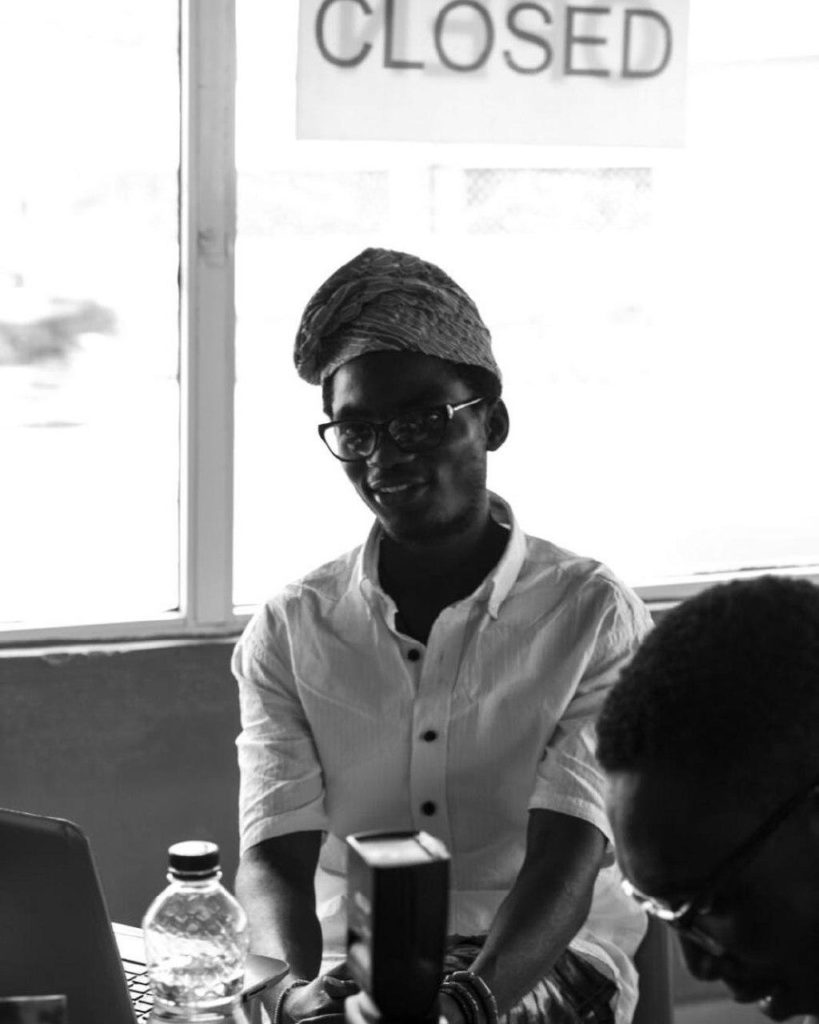 The Favourite Son of Africa is the pseudonym of Tọ́pẹ́ Salaudeen-Adégòkè. He is an editor, literary critic and poet from Ibadan, Nigeria. Tọ́pẹ́ is the administrator of the Kofi Awoonor Memorial Library in Ibadan. He writes for Wawa Book Review, Abuja, and FilmsandCinemas, Lagos. He enjoys travelling and cooking. @LiteraryGansta is his alter ego on Twitter.
The Favourite Son of Africa is the pseudonym of Tọ́pẹ́ Salaudeen-Adégòkè. He is an editor, literary critic and poet from Ibadan, Nigeria. Tọ́pẹ́ is the administrator of the Kofi Awoonor Memorial Library in Ibadan. He writes for Wawa Book Review, Abuja, and FilmsandCinemas, Lagos. He enjoys travelling and cooking. @LiteraryGansta is his alter ego on Twitter.
Cover photo credit: Bellahomesng
